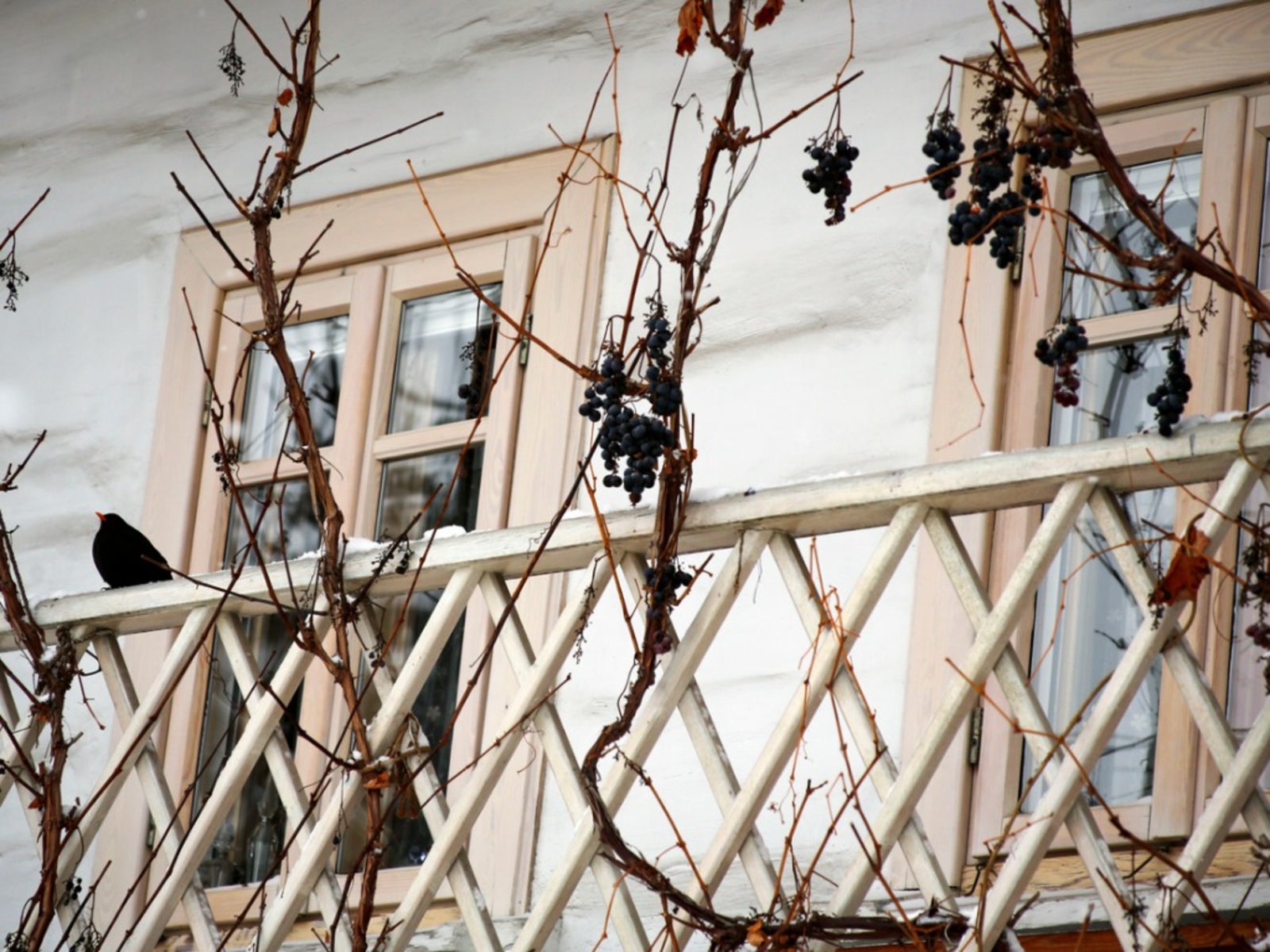
Sign up for the Gardening Know How newsletter today and receive a free copy of our e-book "How to Grow Delicious Tomatoes".
You are now subscribed
Your newsletter sign-up was successful
Whether out of necessity due to lack of garden space or simply more space for additional garden treasures, container gardening is a form of gardening that everyone can enjoy. Balcony gardens in winter do require some extra TLC to ensure their continuing health for the next growing season. Read on to learn more about balcony winter care for plants.
Balcony Gardens in Winter
In the not so distant past, annuals were the primary plants set out in containers on balconies. Today, everything from perennials to small trees and shrubs are grown in containers on our decks and balconies. Unlike fading annuals, the thought of tossing out a perennial is antithesis to the gardener. However, the roots of these potted plants are above ground and, therefore, more susceptible to freezing. So overwintering balcony gardens is of paramount interest. The selection of pots is important for balcony gardening in winter. Materials such as terra cotta, concrete, and ceramic do not fare well in freezing temps. Choose those that are at least ½-2 inches (1.25-5 cm.) thick to prevent cracking or use fiberglass, polyethylene, and the like for balcony gardens in winter. These latter materials are also lighter weight and easier to move about. Plants will also do better in larger pots of at least 18-24 inches (45-60 cm.).
Options for Overwintering Balcony Gardens
There are several options for winter plant care on balconies. First of all, if the pots are on the small side and you do have garden space, dig a hole large enough to accommodate the entire pot up to the rim. Fill around with soil and cover with a thick layer of mulch, such as straw or leaves. You can also gather up all your pots and group them on an east or north exposure of a building and cover them with straw or leaves. Additionally, pots may be moved for sheltering inside a shed or garage. You will have to check on them occasionally so they don't dry out. Of course, you can simply cover your plants, especially if they cannot be moved indoors or other sheltered area. Wrap plants with evergreen boughs or straw, secured with twin. Burlap can be wrapped around plants or an enclosure made of chicken wire filled with dried leaves and covered with a waterproof tarp. You can set pots into boxes filled with styrene packing peanuts. Cover the plant with old sheets or light blankets with a 2-inch (5 cm.) mulched base of shredded hardwood. Heavy plastic or even layers of newsprint can be placed over the plants during a temporary freeze. Taller, columnar plants can have a supporting hoop placed with mesh netting tied around them.
Winter Care on Balconies
No matter how you are protecting the plants from the elements, they will no doubt need some water, even in the winter. Keep the soil slightly moist, just enough so the roots do not dry out. Water well before the first heavy freeze and whenever the temps rise above 40 degrees F. (4 C.). Also, don't let the plants sit in water lest it freeze. Outdoor winter plants do not need fertilizing, indoor sheltering plants should be lightly fertilized, however. Don't remove coverings too soon in the spring; Mother Nature can be tricky. If the container plants have been indoors, gradually introduce them back outdoors so they can acclimate to the temperature change. Well adjusted plants are less susceptible to pests and diseases.
Sign up for the Gardening Know How newsletter today and receive a free copy of our e-book "How to Grow Delicious Tomatoes".

Amy Grant has been gardening for 30 years and writing for 15. A professional chef and caterer, Amy's area of expertise is culinary gardening.
